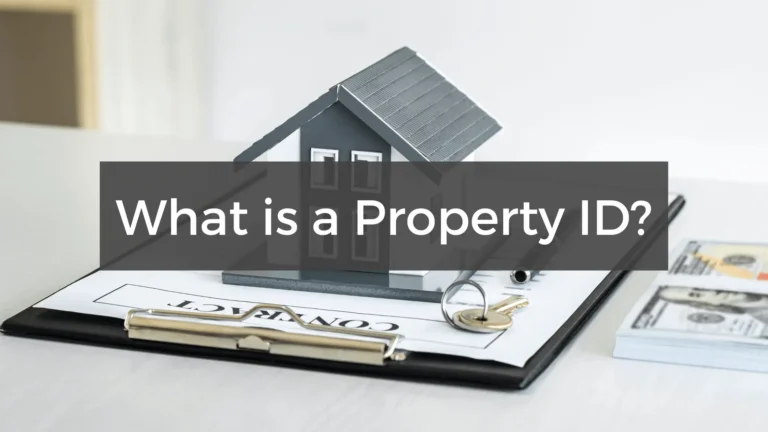How Much Does Real Estate School Cost? Unveiling the Expenses

If you’re considering a career in real estate, one of the first questions that may come to mind is, How much does real estate school cost? Understanding the financial investment required for your real estate education is crucial in your journey to becoming a real estate professional. Whether you’re dreaming of becoming a licensed real estate agent, broker, or property manager, the costs associated with real estate school can vary widely, depending on multiple factors.
In this comprehensive guide, we will unravel the mysteries of real estate school costs, helping you gain clarity on the expenses involved in your pursuit of a real estate career.
Let’s delve into the various factors influencing the total cost, present average cost breakdowns, and share some useful advice on cutting down your expenses for real estate education. By the end of this article, you’ll be well-informed and better prepared to make a sound financial decision as you embark on your path toward success in the real estate industry.
Let’s dive into real estate education costs, so you can begin your journey with confidence and a clear budget in mind.
Factors Affecting How Much Does Real Estate School Cost
The cost of real estate education can vary significantly based on several factors. For aspiring students, understanding these factors is crucial in effectively planning and budgeting for their schooling. Here are the key elements that can impact how much real estate school costs
- Type of Program: The specific real estate program you choose can have a significant impact on the cost. Programs can range from short courses and certificate programs to full undergraduate or graduate degrees. The length and depth of the program will affect tuition fees.
- Institution: The cost is heavily influenced by the educational institution you choose. Tuition fees can vary between universities, colleges, technical schools, and online platforms. Prestigious institutions may charge higher tuition.
- Location: The cost of living and education expenses can differ based on your geographic location. Tuition fees and housing costs in urban areas are typically higher than in rural areas. State-specific requirements and fees for real estate licensing exams can also vary.
- In-Person vs. Online Courses: In-person courses often come with additional costs, such as commuting, parking, and housing. Online courses may offer more flexibility and cost savings, although they can still have tuition fees and associated expenses like software or materials.
- Course Material and Resources: Real estate courses may require textbooks, study materials, and software tools. The expenses for these materials may differ based on the curriculum of the program and the requirements set by the institution.
- Licensing and Exam Fees: To become a licensed real estate professional, you’ll need to take licensing exams. These exams come with associated fees. Different states may have different fees and requirements for exams and licenses.
- Continuing Education: Once individuals acquire a real estate license, they typically need to undergo continuing education courses. These additional courses come with extra costs that should be taken into account for continuous professional development.
- Additional Costs: There can be various other expenses related to real estate education. These might include background checks, fingerprinting, and membership fees for real estate associations.
- Student Discounts: Some institutions or programs may offer discounts or scholarships for students based on various factors, such as academic performance, financial need, or military service.
- Professional Associations: Becoming a member of a professional real estate association, like the National Association of Realtors (NAR), involves paying membership dues. Including these costs in your overall budget for education and career expenses is important.
- Textbook Rentals and Used Materials: Some students opt for renting textbooks or purchasing used course materials, which can help reduce costs.
- Employer Sponsorship: In some cases, employers may provide financial support or reimbursement for employees pursuing real estate education. This can significantly reduce the out-of-pocket expenses for the student.
Fastest way to get California real estate license
Securing a California real estate license entails multiple steps, and the entire process may take a few months to reach completion. However, if you want to expedite the process as much as possible, here are some tips to help you get your California real estate license as quickly as you can:
Meet the Eligibility Requirements
Make sure to fulfill all the eligibility criteria established by the California Department of Real Estate (DRE). You must be at least 18 years old, have a high school diploma or equivalent, and pass a background check.
Pre-Licensing Education
Enroll in a California DRE-approved pre-licensing education course. The course typically consists of 135 hours of required education. Choose a program that offers flexible study options and consider completing it as quickly as possible. Some schools offer accelerated courses.
Study Efficiently
Dedicated focused and efficient study time. Set a schedule and stick to it. Consider using study aids and practice exams to help you grasp the material faster.
Schedule the State Exam
Once you finish your pre-licensing education, you can arrange to take the California Real Estate Salesperson Exam through the DRE. It’s a good idea to book the exam as soon as you complete your coursework to avoid any delay.
Exam Preparation
Before taking the exam, invest time in thorough exam preparation. Review your course materials, use study guides, and consider taking practice exams to familiarize yourself with the types of questions you’ll encounter on the actual test.
Pass the State Exam
Once you feel adequately prepared, take and pass the California Real Estate Salesperson Exam. Be sure to bring all required identification and fees to the exam location.
Live Scan Fingerprinting
After passing the exam, you’ll need to complete a Live Scan fingerprinting process for a background check. This is a requirement for obtaining your license.
Submit Application
Submit your application for a California real estate salesperson license to the DRE. Ensure that your application includes all necessary documents and fees. Opting for an online application can accelerate the process.
Choose a Sponsoring Broker
To activate your license, you’ll need to work under a licensed California real estate broker. Choose a broker who is willing to sponsor you. Your broker must complete the necessary paperwork to affiliate you with their brokerage.
Wait for License Issuance
The DRE will review your application, and if everything is in order, they will issue your California real estate license. The duration of this procedure may extend over several weeks. Be patient and responsive to any inquiries from the DRE during the application review.
Remember that while you can expedite certain steps, some parts of the process, like the DRE’s review of your application and the scheduling of the state exam, are not entirely within your control. Be prepared for some waiting time, but by completing your pre-licensing education efficiently and passing the state exam on your first attempt, you can expedite the overall process of getting your California real estate license.
Exploring Real Estate Education Options
For those considering a career in real estate, understanding the cost of real estate education is a vital first step. It’s important to research different educational institutions and programs to determine how much you can expect to invest in your training. You can explore options such as:
- Van Education Center offers a range of real estate courses tailored to your needs Van Education Center.
- Innovating Career Education provides valuable insights into the costs associated with real estate education.
- AceableAgent provides information on the cost of real estate licensing in the Golden State AceableAgent.
Wrapping Up
Understanding the costs associated with real estate education is a crucial starting point for anyone aspiring to embark on a career in this dynamic field. By delving into the details and factors that affect real estate school costs, you can make informed decisions about the financial investment you’re about to undertake. Remember that the costs can vary based on the type of program, the institution you choose, and your location. To expedite your journey to a California real estate license, you can follow the steps outlined and be prepared to meet the requirements efficiently.






